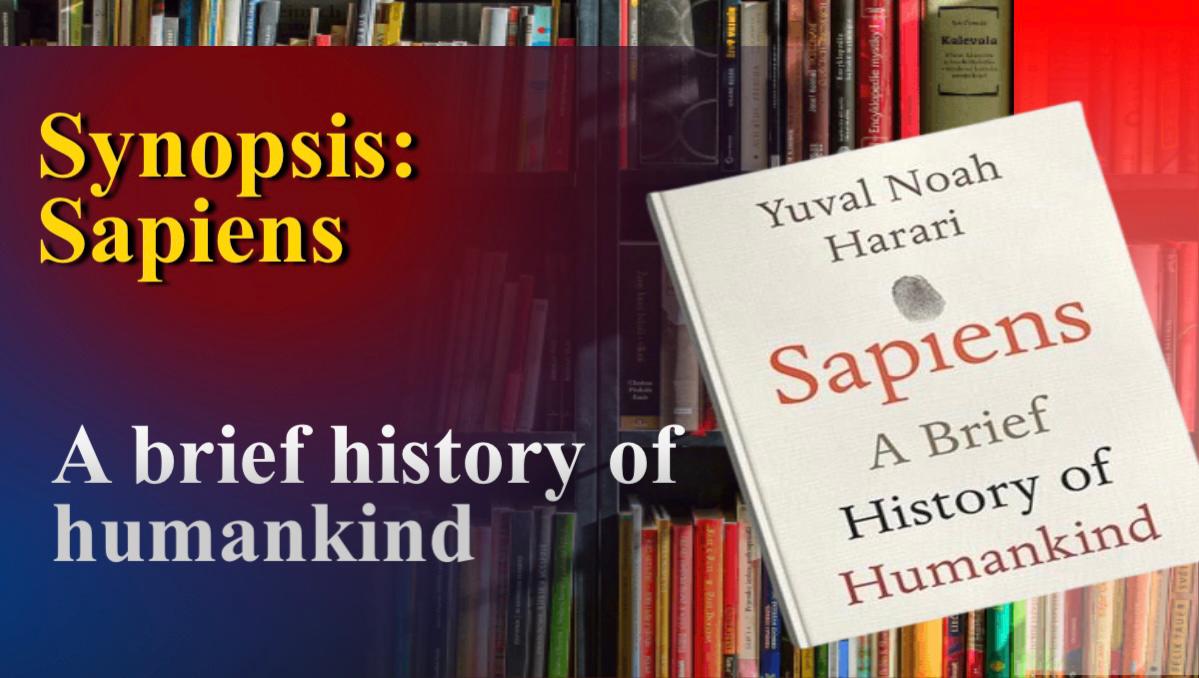“Sapiens: A Brief History of Humankind” by Yuval Noah Harari Book review
“Sapiens: A Brief History of Humankind” by Yuval Noah Harari offers a profound exploration of human history, unraveling key lessons that resonate with the contemporary world. Here are ten important lessons gleaned from the pages of “Sapiens”:
- The Power of Shared Beliefs: Harari emphasizes the pivotal role of shared beliefs and myths in shaping human societies. Whether in the form of religious ideologies, political systems, or societal norms, these shared fictions have been instrumental in fostering cooperation and organizing large groups of people.
- The Cognitive Revolution: The ability of Homo sapiens to create and share complex imagined realities through language and communication marked a turning point in human history. The Cognitive Revolution propelled our species to the top of the food chain and laid the foundation for the development of civilizations.
- The Impact of Agriculture: The Agricultural Revolution transformed human societies from nomadic hunter-gatherer lifestyles to settled agricultural communities. While it brought about abundance and stability, it also introduced new challenges, including social hierarchies, inequalities, and the concept of private property.
- The Unintended Consequences of Progress: Harari explores how advancements, such as the Agricultural and Industrial Revolutions, brought about unintended consequences. While technological progress improved human lives in many ways, it also led to societal inequalities, environmental degradation, and ethical dilemmas.
- The Evolution of Capitalism: “Sapiens” delves into the evolution of economic systems, particularly the rise of capitalism. Harari discusses how capitalism’s ability to create wealth and spur innovation coexists with its potential to exacerbate social disparities and exploit resources unsustainably.
- The Impact of Imperialism: Imperialism and the expansion of empires have played a significant role in shaping global history. The book examines how the quest for power and resources has influenced the fate of nations and the interconnectedness of societies.
- The Fragility of Social Constructs: Harari highlights the fragility of social constructs such as money, nations, and corporations. These are, essentially, shared stories that hold power only as long as people collectively believe in them. Understanding this fragility is crucial in navigating the complexities of the modern world.
- The Struggle for Equality: “Sapiens” prompts reflection on the ongoing struggle for equality throughout history. From gender disparities to racial discrimination, the book encourages readers to question and challenge societal norms that perpetuate inequality.
- The Dangers of Technological Advancement: Harari raises concerns about the potential dangers of unchecked technological advancement. Whether exploring the ethical implications of genetic engineering or the risks associated with artificial intelligence, “Sapiens” urges us to carefully consider the impact of our technological choices.
- The Need for Collective Responsibility: Ultimately, “Sapiens” emphasizes the importance of collective responsibility in addressing the challenges of the present and future. Harari encourages readers to recognize their role in shaping the course of history and to engage in thoughtful, informed decision-making for the benefit of humanity as a whole.
—
